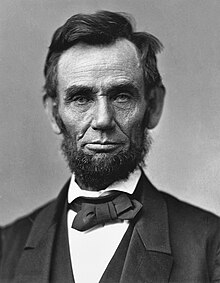📖 Presidential Profile
Comprehensive overview of leadership, policies, and historical significance
📋 Biography & Political Journey
Early Life and Legal Career
Abraham Lincoln was born on February 12, 1809, in a log cabin in Hodgenville, Kentucky, to Thomas Lincoln and Nancy Hanks Lincoln. His family moved to Indiana in 1816 and later to Illinois in 1830, where Lincoln settled permanently. Despite receiving less than one year of formal education, Lincoln was an voracious autodidact who read every book he could find. He taught himself law by studying Blackstone’s Commentaries and other legal texts, earning his law license in 1836 and establishing a successful practice in Springfield, Illinois.
Lincoln entered politics as a Whig, serving four terms in the Illinois House of Representatives (1834-1841) and one term in the U.S. House of Representatives (1847-1849). Though he briefly retired from politics after his congressional term, the Kansas-Nebraska Act of 1854 drew him back to oppose the expansion of slavery into new territories. His debates with Stephen Douglas during the 1858 Senate campaign, particularly his “House Divided” speech declaring that “this government cannot endure, permanently, half slave and half free,” brought him national attention despite losing the election.
Lincoln secured the Republican presidential nomination in 1860 as a moderate compromise candidate and won the presidency with less than 40% of the popular vote in a four-way race. His election triggered the secession crisis, with South Carolina leaving the Union before his inauguration. Seven states had seceded by the time Lincoln took office on March 4, 1861, and the attack on Fort Sumter on April 12, 1861, began the Civil War that would define his presidency and transform American society forever.
Controversial Wartime Powers
Lincoln’s prosecution of the Civil War involved unprecedented expansions of presidential power that generated significant controversy and constitutional debate. He suspended habeas corpus without congressional authorization, allowing for the detention of suspected Confederate sympathizers and war opponents without trial. His administration arrested thousands of civilians, including newspaper editors, politicians, and private citizens accused of disloyalty. The Emancipation Proclamation itself was controversial, as critics argued Lincoln lacked constitutional authority to free slaves and that it applied only to rebellious states while leaving slavery intact in loyal border states. Lincoln also instituted the first federal draft in American history, leading to violent riots in New York City in 1863. His suppression of opposition newspapers and political dissent raised serious questions about civil liberties during wartime, debates that continue to influence discussions about executive power during national emergencies.
The Presidential Wrestling Champion
Before becoming president, Lincoln was renowned throughout Illinois as perhaps the greatest wrestler of his generation, standing 6’4″ with unusually long arms and possessing remarkable strength from years of rail-splitting and manual labor. Legend has it that Lincoln lost only one wrestling match in his entire life, and he would often challenge critics and political opponents to settle disputes on the wrestling ground rather than through conventional debate. Even as president, Lincoln maintained his playful competitive spirit, once surprising a group of visiting soldiers by demonstrating his ability to hold a heavy axe at arm’s length—a feat none of the younger men could replicate. “If you want to test a man’s character, give him power—or try to wrestle him,” Lincoln reportedly joked, combining his folksy wisdom with his legendary physical prowess in a way that endeared him to common folk while occasionally horrifying more refined political associates.
Humor & Jokes
Rail Splitter
Lincoln was known as the 'Rail Splitter.' He went from splitting rails to splitting the…
Read More →Greatest Wins
🏡 Homestead Act Implementation
Lincoln's signature on the Homestead Act gave 160 acres of free land to settlers, democratizing…
Read More →Epic Fails
📰 Suppression of Opposition Press and Free Speech
Lincoln shut down over 300 opposition newspapers and arrested editors, raising serious questions about First…
Read More →